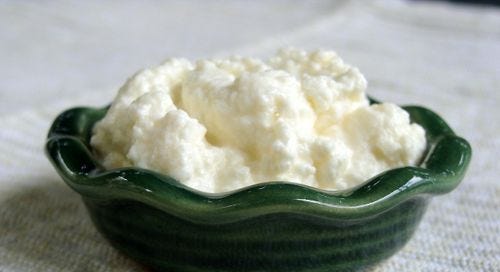Originally published September 2009
I first tasted homemade ricotta about 10 years ago. It was quite revelatory. Creamy, almost buttery, bits of cheese, full of flavor that melt in your mouth. Nothing at all like the watery stuff I grew up eating off supermarket shelves. I hadn't given much thought to making it myself until just recently—like last Thursday. Truth be told, I can't remember if I'm coming or going these days, so I couldn't tell you what brought on the urge exactly. I just remember waking up thinking I want to make ricotta. This is where Google comes in real handy. Imagine how much quicker we would've evolved if cavemen would have googled "how to make fire"?
Anywho, a quick search showed a few variations in ingredients, but the basic chemical reaction (curdling the milk) required two things: milk and an acid. Some recipes called for lemon, others white vinegar. The one that struck me was Heidi Swanson's over at 101 Cookbooks. Her's called for buttermilk, and it was really genius. Buttermilk naturally contains lactic acid.
While Heidi's recipe was simply buttermilk and whole milk, I liked David Lebovitz's use of cream. I had a hunch it would produce that buttery flavor I was looking for, so I scaled back some of the milk to add it. Not only was I incredibly happy with the outcome, I also learned it's ridiculously easy to make from scratch. Now I don't have to worry that my favorite Italian shops are closed on Sunday or Monday. I can enjoy homemade ricotta all the time. Another perk is eating it still warm from the colander—topped with some homemade strawberry or tomato jam. Next time I'm going to make it with the kids as a tasty science lesson.
The recipe related to this post is available for paid subscribers only. Join hundreds of other subscribers now for only $5/month or $30/year (that’s six months free!). Quarterly e-cookbooks are an additional benefit of paid membership.





